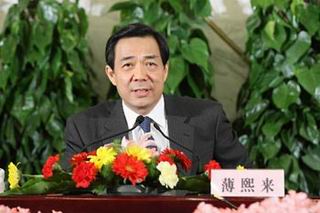Source: CCTV.com
03-12-2007 17:30
Special Report: 2007 NPC & CPPCC sessions |
Senior Chinese government officials say China's trade surplus has benefits for its trading partners. They add that China is working to balance international payments, curb the trade surplus and squeeze capital liquidity to strengthen the economy.
China's economic development brings with it, an increase in trade. The country's trade surplus reached over 177 billion US dollars in 2006.
To curb surplus, China's has revoked export subsidies and its EU counterparts are happy with this.
But the US wants more. Some US lawmakers propose an extra 27 and a half percent tax on Chinese goods and China believes this proposal could be disastrous.
Bo Xilai, minister Ministry of Commerce, said, "The proposal violates WTO rules. If the proposal is passed it will harm the good Sino-US trade greatly and also the interests of business people."
Bo says the US has a trade deficit of over 40 percent in East Asia and is gradually being transferred from its trade with Japan and South Korea to China.
Companies benefiting from China's trade surplus are mainly foreign-funded. Compared with US importers and retailers, Chinese exporters have earned very slim profits.
Bo Xilai, said, "Last year, US companies in China benefited from their sales in China and exports to other countries, totalling 110 billion US dollars. The US-funded companies here also enjoy a surplus in the goods trade and service sectors. So taking all these into consideration, last year, the Sino-US trade is balanced."
The Governor of China's central bank explains that China is working to curb trade surplus. And with the increase to labor costs and other factors, the situation can be soothed in time.
China is pursuing to balance international payment. The country has to hand many measures it can take in order to achieve this goal.
Zhou Xiaochuan, governor People's Bank of China, said, "Top priority is structural adjustment. First, enlarge domestic demand, especially consumption and development of the service sector, and enlarge imports. The exchange-rate policy can also work as a subsidiary measure."
The governor says China is also working to squeeze liquidity in the country. Excessive liquidity caused by bank credit is widely seen as a major problem for China's economy. The central bank has raised the bank reserve ratio twice this year, to curb the growth of bank loans. Other measures include making transactions more transparent, adjusting interest rates among bankers and the interest of re-loan.
Editor:Du Xiaodan
